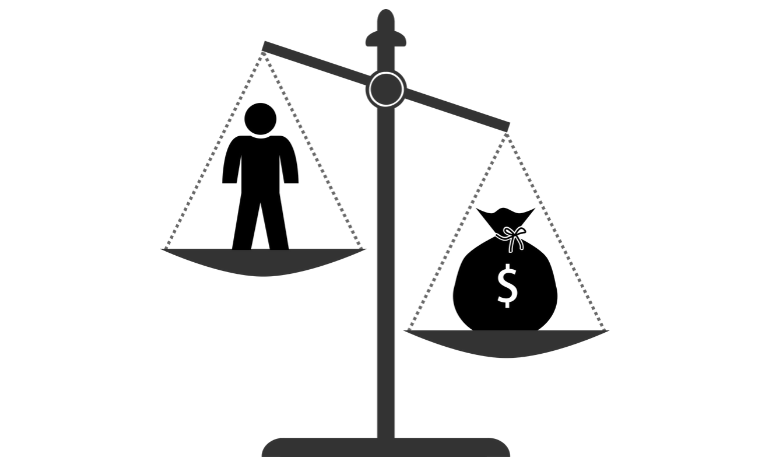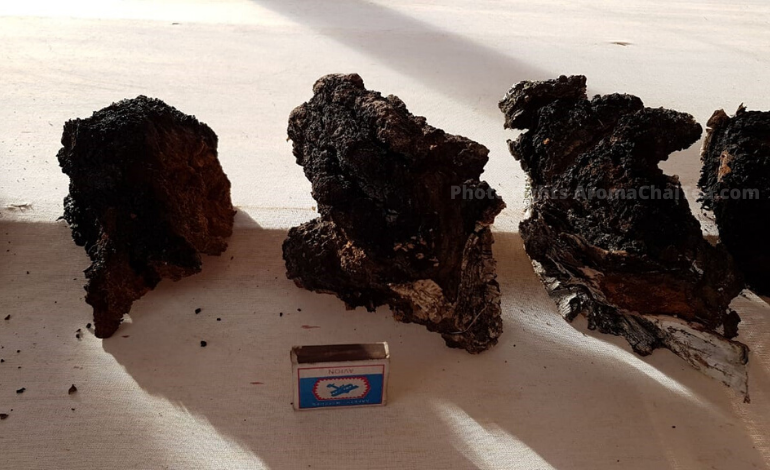
As COVID-19 pandemic spreads, more and more con artists are trying to take advantage of mass panic and despair. Sadly, there are many jugglers in the world of the therapeutic herbs' suppliers too. Chaga mushroom, a medicinal fungus that has been used in folk medicine for centuries to treat various ailments, is now trending as a remedy that can protect if not cure of COVID-19. Right now, there are over 3,000 Chaga mushroom products for sale on Amazon, including tea, coffee, powder, capsules, and mushroom chunks. In defense of all honest Chaga suppliers and people who use Chaga for health reasons, we decided to explain what Chaga can and can not do, as well as how to choose your Chaga supplements, so you don't fall the victim of some people's greed.

Chaga mushroom is a fungus that grows primarily on birch trees in colder climates in the Northern hemisphere. The best Chaga is believed to come from subarctic birch forests like those of Alaska, Northern Canada, Iceland, the north of Scandinavia, and Siberia. For centuries Chaga has been used in Siberia, parts of Asia, and Northern European countries as a therapeutical supplement mainly to boost immunity and improve overall health.
Quality Chaga is never cheap because it is difficult to source it. The mushroom is found in as few as 1 in 20,000 birch trees, and it takes the fungus 10-15 years to mature into a potent Chaga. Responsible Chaga suppliers also forage for Chaga during late fall and winter when the birch trees are gone dormant. Before the sap starts running, Chaga is at its peak nutrient values. On the summer Chaga is flushed of its nutrients and consist of 80% of water. In addition, remember, Chaga is a parasite growing on the birch tree, so when the tree dies, so does the Chaga, which means that the Chaga must always be harvested from living trees.
Finally, because of the Chaga's widespread popularity, now it is artificially cultivated using submerged fermentation technology. Fermentation is an artificial cultivation of mycelium biomass from the mushroom stamp. An extract made from such a Chaga substitute is almost useless.
The takeaway: Make sure the supplier is transparent about their Chaga source.

The scientific research on Chaga is minimal. However, some laboratory and animal studies on Chaga have yielded promising results, showing that compounds in Chaga can stimulate the immune system, help reduce fatigue and inflammation, and increase mental sharpness. While there are too few to be conclusive studies examining Chaga's antiviral effects, a valid preclinical data supports an immune-modulating impact of Chaga. Laboratory analysis also suggested that the fruiting body of Chaga mushroom has superior antioxidant content.
The takeaway: Chaga may help you boost the immune system and hence lower the probability of acquiring a viral disease, but it is NOT a COVID-19 cure or protection.
Traditionally, Chaga was grated into a fine powder and brewed as an herbal tea. The tea form continues to be the most popular one. If you don't have patience or time to brew fresh Chaga tea every day, you may try Chaga tincture or extract instead.
Despite the reason you decide to add Chaga to your regiment, please make sure that you buy quality wildcrafted Chaga from the honest supplier who values your holistic health above profit.
Read some research on Chaga:
Glamoclija J, Ciric A, Nikolic M, et al. Chemical characterization and biological activity of Chaga (Inonotus obliquus), a medicinal “mushroom”. J Ethnopharmacol. Mar 13 2015;162:323-332.
Kang JH, Jang JE, Mishra SK, Lee HJ, Nho CW, Shin D, Jin M, Kim MK, Choi C, Oh SH. Ergosterol peroxide from Chaga mushroom (Inonotus obliquus) exhibits anti-cancer activity by down-regulation of the β-catenin pathway in colorectal cancer. J Ethnopharmacol. 2015 Sep 15;173:303-12. doi: 10.1016/j.jep.2015.07.030. Epub 2015 Jul 22.
Zhong XH, Wang LB, Sun DZ. Effects of inotodiol extracts from inonotus obliquus on proliferation cycle and apoptotic gene of human lung adenocarcinoma cell line A549. Chin J Integr Med. 2011 Mar;17(3):218-23. doi: 10.1007/s11655-011-0670-x. Epub 2011 Feb 27.
Nikitina SA, Khabibrakhmanova VR, Sysoeva MA [Composition and biological activity of triterpenes and steroids from Inonotus obliquus (chaga)]. Biomed
Khim. 2016 May;62(4):369-75. doi: 10.18097/PBMC20166204369. Review. Russian.
Polkovnikova MV, Nosik NN, Garaev TM, Kondrashina NG, Finogenova MP, Shibnev VA. A study of the antiherpetic activity of the chaga mushroom (Inonotus obliquus) extracts in the Vero cells infected with the herpes simplex virus]. Vopr Virusol. 2014 Mar-Apr;59(2):45-8. Russian.
Pan HH, Yu XT, Li T, Wu HL, Jiao CW, Cai MH, Li XM, Xie YZ, Wang Y, Peng T. Aqueous extract from a Chaga medicinal mushroom, Inonotus obliquus (higher Basidiomycetes), prevents herpes simplex virus entry through inhibition of viral-induced membrane fusion. Int J Med Mushrooms. 2013;15(1):29-38.
Yoon TJ, Lee SJ, Kim EY, et al. Inhibitory effect of chaga mushroom extract on compound 48/80-induced anaphylactic shock and IgE production in mice. Int Immunopharmacol. Apr 2013;15(4):666-670.
Park YM, Won JH, Kim YH, et al. In vivo and in vitro anti-inflammatory and anti-nociceptive effects of the methanol extract of Inonotus obliquus. J Ethnopharmacol. Oct 3 2005;101(1-3):120-128.
Mishra SK, Kang JH, Kim DK, Oh SH, Kim MK. Orally administered aqueous extract of Inonotus obliquus ameliorates acute inflammation in dextran sulfate sodium (DSS)-induced colitis in mice. J Ethnopharmacol. 2012 Sep 28;143(2):524-32. doi: 10.1016/j.jep.2012.07.008. Epub 2012 Jul 20.
Hu Y, Sheng Y, Yu M, Li K, Ren G, Xu X, Qu J. Antioxidant activity of Inonotus obliquus polysaccharide and its amelioration for chronic pancreatitis in mice. Int J Biol Macromol. 2016 Jun;87:348-56. doi: 10.1016/j.ijbiomac.2016.03.006. Epub 2016 Mar 5.
Wu T, Shu Q, Yang K, Xie X, Wang X, Wang Y, Guo A, Yuan N, Zhao B, Chi B, Wu Q, Fu Z. Ameliorating effects of Inonotus obliquus on high fat diet-induced obese rats. Acta Biochim Biophys Sin (Shanghai). 2015 Sep;47(9):755-7. doi: 10.1093/abbs/gmv073. Epub 2015 Aug 4. No abstract available
💚 As always, if you are taking any type of prescription medication, please consult your doctor regarding possible interactions and never stop taking medications without your doctor’s approval.
****
This product is not intended to diagnose, treat, cure, or prevent any disease.